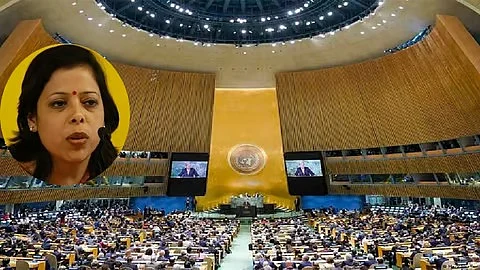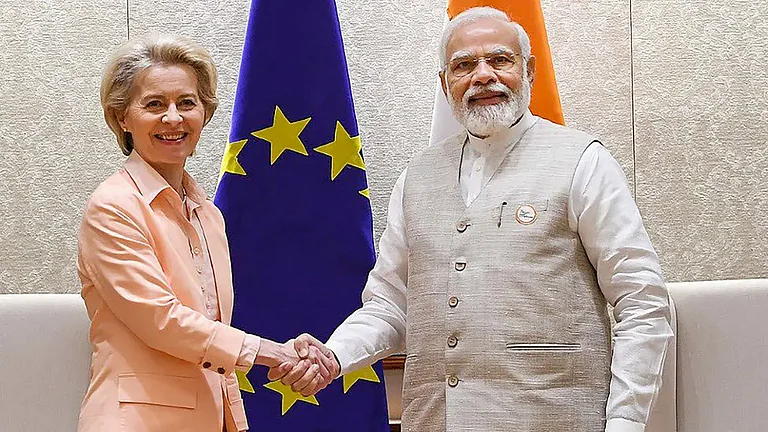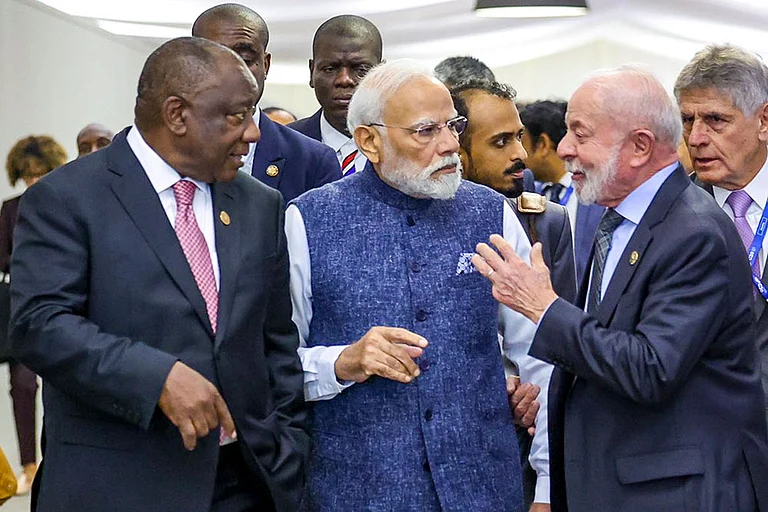At the recently concluded United Nations "Summit of the Future" in New York, India once again demonstrated its global leadership in addressing climate change. With a message centered on sustainable living, the Indian delegation, led by Leela Nandan, Secretary in the Union Environment Ministry, advocated for a significant shift in global lifestyles and presented a compelling vision for how such changes could mitigate climate challenges.
The summit, which brought together world leaders, policymakers, and stakeholders to discuss emerging global threats, became a platform for countries to collaborate on solutions to the most pressing issues of our time. In the backdrop of rising climate-related disasters, discussions on multilateral cooperation have never been more urgent. The Indian delegation to the summit demonstrated that the country was committed to this global endeavor, underscoring how addressing climate change transcends policies but rather involves adopting an eco-friendly way of living.
"The purpose of this Summit is really to restore the trust and the functioning of international cooperation. So, we are looking at how we work together at the global level to deliver on all the promises that we have already made, all the goals that we have already set for ourselves but we are also looking at all of the challenges and risks and opportunities that are coming in the future and trying to make sure that the United Nations and other major organizations of international cooperation are ready for those challenges. We are also ready to harness all those opportunities for the sake of all of humanity and not just a few," says Summit of the Future, director Michele Griffin.
India's Approach: Sustainable Lifestyles

In her speech, Leela Nandan noted that climate change discussions frequently focus solely on reducing carbon emissions and technological fixes. While these efforts are vital, she emphasized that achieving success requires affordable and practical solutions that resonate with the public. "We are more likely to succeed if we offer affordable solutions, not simply impose decisions," Nandan said. This statement struck at the heart of one of the most significant challenges in climate policy—ensuring that the solutions offered are both accessible and adaptable by people of all socioeconomic backgrounds.
India's solution? A call for a shift towards sustainable lifestyles. It’s a simple yet powerful concept that can bring about immense change if adopted on a global scale. According to Nandan, adopting sustainable food systems, reducing waste, saving water, and conserving energy could reduce global emissions by 2 billion tons annually by 2030, citing an estimate by the International Energy Agency (IEA). This figure represents a crucial reduction, underscoring that climate actions, while often seen as large-scale initiatives, can also be made tangible by making lifestyle choices that respect environmental limits.
Education and Awareness: The Foundation of India's Efforts
A major component of India's message at the summit was the role of education and grassroots initiatives in fostering sustainable living. Nandan pointed to the success of India’s eco-club initiative, which connects over one million schools across the country. These eco-clubs are tasked with raising awareness about sustainable practices and encouraging young students to adopt eco-friendly behaviors. By embedding environmental consciousness into the education system, India is preparing the next generation to be stewards of a planet facing unprecedented ecological threats.
Education, according to Nandan, must also be aligned with emerging economic opportunities. She highlighted India's clean energy sector, which she projected could generate between 30 to 35 million jobs by 2047. This bold prediction signals not only India’s transition to a green economy but also its foresight in addressing one of the biggest concerns in the climate debate—how to balance economic growth with environmental sustainability.
Global Cooperation Through the International Solar Alliance and Biofuel Alliance
India's commitment to multilateral cooperation is also evident through its role in founding international organizations such as the International Solar Alliance (ISA) and the Global Biofuel Alliance. The ISA, which seeks to promote solar energy, has already gained global recognition, helping countries reduce their dependence on fossil fuels. Similarly, the Global Biofuel Alliance is expected to have a far-reaching impact by promoting the production and use of biofuels, which are seen as a key part of the transition to cleaner energy.
Nandan's speech highlighted these initiatives, positioning India as a proactive player in the global clean energy transition. These organizations are part of India's broader strategy to not only lead in climate action but also enable other countries—especially those in the Global South—to adopt sustainable energy solutions. The emphasis on biofuels and solar energy reflects India's commitment to finding renewable energy alternatives that are not only effective but also scalable and accessible.
'Ek Ped Maa Ke Naam' Campaign: A Community-Led Initiative
Prime Minister Narendra Modi’s "Ek Ped Maa Ke Naam" (Plant for Mother) campaign, launched in June, was another focal point of India's presentation at the UN summit. This initiative urges people to engage in planet-friendly actions by planting trees. Since its launch, over 750 million saplings have been planted in just three-and-a-half months, a testament to the power of community-driven efforts.
The success of this campaign illustrates that large-scale environmental action does not always need to stem from governmental directives. It shows that individuals, when motivated by a shared sense of responsibility, can make a significant impact. The planting of saplings may seem like a small act, but when multiplied by millions, it can have a profound effect on carbon sequestration, biodiversity preservation, and combating desertification.
The simplicity of the campaign’s message, planting a tree for the planet, is also reflective of the broader theme India presented at the summit: sustainability begins at the grassroots level. Just as individuals can contribute by planting a tree, they can also make other sustainable choices in their daily lives that, when combined, lead to substantial positive outcomes.
The Path Forward: Global Success Through Collective Effort
The significance of the "Summit of the Future" lies in its focus on global collaboration. Climate change is not an issue that can be tackled by any one country in isolation. As Leela Nandan stressed, the key to success is affordable and adaptable solutions that can be implemented globally.
India's participation in the summit showcased its willingness to take on a leadership role in the fight against climate change, not just through its policies but through its active engagement in multilateral forums. The country’s promotion of sustainable living, coupled with its efforts in clean energy, international cooperation, and community-driven campaigns, serves as a model for other nations.
The message from India at the UN Summit of the Future was clear: global challenges like climate change require a collective response, and that response starts with simple, sustainable actions. As the world looks ahead, India’s vision of affordable, accessible, and practical solutions offers a roadmap for how we can build a more sustainable future for all.



























